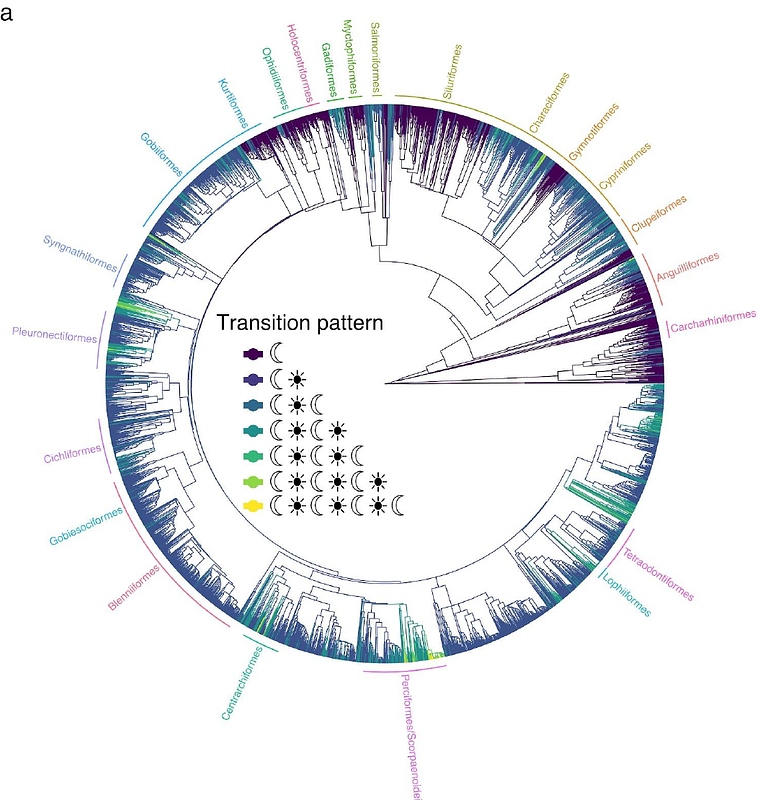Frequent transitions from night-to-day activity after mass extinctions

Frequent transitions from night-to-day activity after mass extinctions
Shafer, M. E. R.; Nichols, A. L. A.; Schier, A. F.; Salzburger, W.
AbstractWhy certain species survive large-scale extinction events while others do not is poorly understood. While the fossil record can provide insights into morphological adaptations that increase survival probabilities, it provides limited information regarding behavioural traits. Here we integrate behavioural data with phylogenetic comparative models to study the evolution of day-night activity patterns (nocturnality and diurnality) in bony fishes, which have persisted through the last four mass extinction events. Our findings in fish, combined with data across all other clades of vertebrates, provide four lines of evidence that nocturnality conferred an evolutionary advantage during mass extinctions, and that frequent nocturnal-to-diurnal transitions facilitated post-extinction diversification: First, phylogenetic reconstruction indicates that the last common ancestors of all vertebrates and of clades of bony vertebrates were nocturnal. Second, in the lineage of bony fishes, which contains over half of all vertebrate species, twice as many transitions between nocturnal and diurnal activity patterns have occurred compared to tetrapods. Third, within a specific ecological niche, different species exhibit distinct temporal activity patterns, suggesting widespread temporal niche partitioning. Fourth, independent bursts in night-to-day transitions followed large-scale extinction events during the last two geological eras in all four major bony vertebrate groups. These observations suggest that ancestral nocturnality and frequent transitions to diurnality helped vertebrates survive and diversify in the face of extinction events, such as those expected during the current \"6th mass extinction\" event caused by anthropogenic climate change.